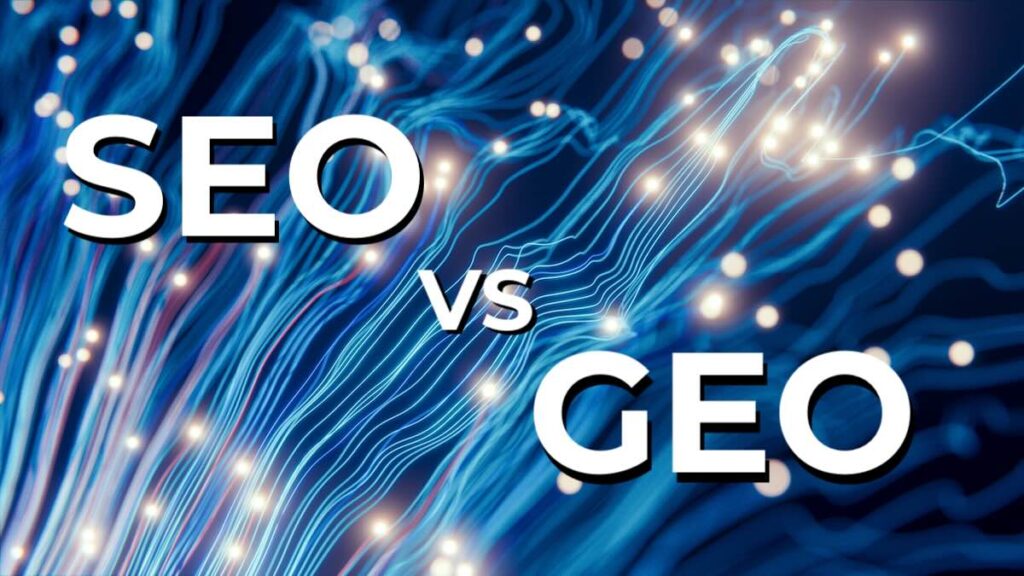Business
Generative Engine Optimization Surpasses SEO in Digital Marketing

The rise of Generative Engine Optimization (GEO) is shifting the landscape of digital marketing, as traditional Search Engine Optimization (SEO) strategies become less effective. According to Bobby Owsinski, a noted producer and author, the emergence of AI-generated content is fundamentally altering how users discover information online, with implications for website visibility and traffic.
The transition from SEO to GEO reflects a broader change in consumer behavior. As AI chatbots increasingly dominate search results, web traffic is reportedly declining by as much as 70% for some sectors. This dramatic drop suggests that relying solely on keywords and backlinks is no longer sufficient for attracting visitors to websites.
Understanding the Shift to GEO
GEO emphasizes the importance of content quality, which has always been a critical factor in SEO but is now paramount in the age of AI. Google prioritizes high-quality content that addresses common questions and can be easily referenced in its AI-generated overviews. This means that websites with established domain authority—a measure of credibility built over time—are more likely to gain traction in search results.
The format and layout of content also play a crucial role. Simplifying language and organizing information into clear headings and lists can enhance how AI interprets your website. The focus has shifted from painstaking keyword optimization to ensuring that content is engaging and informative.
In the past, digital marketers spent considerable time identifying optimal keywords. Today, AI tools use natural language processing to discern the intent and meaning behind content, rendering excessive keyword placement counterproductive. This shift underscores the need for a more intuitive approach to content creation, where clarity and quality take precedence over traditional SEO tactics.
Adapting to New Marketing Strategies
Analytics, once the cornerstone of SEO strategy, are undergoing a transformation. Key performance indicators such as backlinks and traffic are losing their significance. Instead, understanding how algorithms function in the context of AI-generated content is becoming crucial for marketers.
The objective has also evolved. In the SEO landscape, the goal was to rank as high as possible on search engine results pages. With GEO, the focus is on being cited in AI overviews, which can drive interested readers to seek more information.
Some industry observers predict that SEO, as it has been understood, may be nearing obsolescence due to the rise of AI. Although that outlook may seem dire, it is essential to recognize that strategies can be adapted to meet new demands. A website remains a vital asset, serving as a controllable platform for information, despite changes in how users find it.
As the digital marketing landscape continues to evolve, staying informed about these trends and adapting strategies accordingly will be essential for businesses looking to navigate the complexities of online visibility. Bobby Owsinski’s insights into the shift from SEO to GEO underscore the need for marketers to embrace these changes and rethink their approaches to content and audience engagement.
-

 Lifestyle3 months ago
Lifestyle3 months agoLibraries Challenge Rising E-Book Costs Amid Growing Demand
-

 Sports3 months ago
Sports3 months agoTyreek Hill Responds to Tua Tagovailoa’s Comments on Team Dynamics
-

 Sports3 months ago
Sports3 months agoLiverpool Secures Agreement to Sign Young Striker Will Wright
-

 Lifestyle3 months ago
Lifestyle3 months agoSave Your Split Tomatoes: Expert Tips for Gardeners
-

 Lifestyle3 months ago
Lifestyle3 months agoPrincess Beatrice’s Daughter Athena Joins Siblings at London Parade
-

 World3 months ago
World3 months agoWinter Storms Lash New South Wales with Snow, Flood Risks
-

 Science3 months ago
Science3 months agoTrump Administration Moves to Repeal Key Climate Regulation
-

 Science2 months ago
Science2 months agoSan Francisco Hosts Unique Contest to Identify “Performative Males”
-

 Business3 months ago
Business3 months agoSoFi Technologies Shares Slip 2% Following Insider Stock Sale
-

 Science3 months ago
Science3 months agoNew Tool Reveals Link Between Horse Coat Condition and Parasites
-

 Sports3 months ago
Sports3 months agoElon Musk Sculpture Travels From Utah to Yosemite National Park
-

 Science3 months ago
Science3 months agoNew Study Confirms Humans Transported Stonehenge Bluestones









